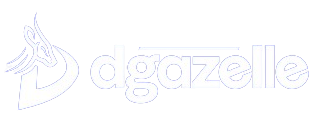Social media has woven itself into the fabric of modern life. From the moment we wake up to the time we fall asleep, platforms like Instagram, Twitter, and TikTok shape how we interact with the world. But beyond sharing photos or staying in touch with friends, social media has a far more profound effect on our reality. It’s reshaping our beliefs, relationships, and even perceptions of the world around us. In this article, we’ll explore 10 surprising ways social media is transforming our reality – and trust us, you won’t believe the impact of #7!
1. Shifting Perceptions of Success
Social media changed how we view success. Once, success was tied to traditional metrics like career achievements, education, and material wealth. Now, success is often measured by the number of followers, likes, and the “perceived” glamorous lifestyle on platforms like Instagram and TikTok. Influencer culture, for instance, showcases luxury living, travel, and entrepreneurial success in ways that may not reflect the reality behind the scenes.
A 2019 survey by Morning Consult found that 86% of young people in the U.S. want to become influencers, showing just how much social media has altered aspirations and success metrics.
2. The Rise of Online Communities
Before social media, connecting with people who shared your interests was limited to local clubs or forums. Now, social media allows users to join global online communities centered around every imaginable topic. From fitness enthusiasts to niche hobbies like medieval sword fighting, there’s a group for everything.
Facebook groups and Reddit communities are prime examples of how people can form deep, lasting connections with like-minded individuals. One notable example is the mental health group “Anxiety Support,” which has over 300,000 members offering peer support and sharing tips on coping with anxiety.
3. The Blurring Line Between Personal and Professional
As social media profiles become extensions of our professional lives, the lines between personal and professional have become increasingly blurred. Platforms like LinkedIn blend career accomplishments with personal stories, while Instagram profiles now serve as professional portfolios for creatives, business owners, and influencers.
Emily Weiss, the founder of Glossier, started as a blogger on Into The Gloss. She transformed her social media presence into a global beauty brand by sharing her personal experiences and beauty secrets. This new trend showcases how personal narratives can evolve into multi-million-dollar brands through social media.
Now the question is how are you positioning yourself and maximizing the transformative power of social media
4. The Creation of Echo Chambers
One of the most surprising impacts of social media is the creation of echo chambers. Algorithms on platforms like Facebook and YouTube recommend content similar to what users have previously engaged with. This reinforces existing beliefs and prevents exposure to diverse perspectives. Over time, these bubbles can lead to polarized viewpoints on political and social issues.
Cambridge Analytica’s role in the 2016 U.S. election is a stark example of how social media can shape political realities. By delivering highly targeted ads, the company helped create digital echo chambers that reinforced voters’ existing beliefs, influencing the outcome of the election.
And Dgazelle can help you replicate same result, weather on your social media account or for your business
5. Redefining Relationships
Social media has drastically transformed the way we build and maintain relationships. Platforms like Facebook and WhatsApp allow people to stay connected with friends and family, regardless of geographical barriers. However, these connections often come at the expense of face-to-face interactions.
Interestingly, apps like Tinder and Bumble have also redefined how we approach dating and relationships. The concept of “swiping” has replaced traditional methods of meeting people, often accelerating relationship development – or creating more casual, short-term connections.
6. The Power of Viral Trends
Viral content has become a driving force in shaping popular culture and even business strategies. Trends, memes, and challenges spread at lightning speed across platforms, influencing everything from marketing campaigns to personal behavior. Companies now use viral trends to reach broader audiences and build brand awareness.
Do you remember the #IceBucketChallenge. What started as a viral challenge in 2014 became a massive movement to raise awareness and funds for ALS research. Over $115 million was raised, highlighting the power of viral social media trends to drive real-world impact.
7. Changing the Concept of Reality Itself
One of the most startling impacts of social media is its ability to alter our perception of reality. With augmented reality (AR) filters on platforms like Snapchat and Instagram, users can enhance their appearance, transport themselves to new worlds, and create highly edited versions of their lives. This can distort self-image, making people feel like their real selves aren’t good enough.
Facebook’s Horizon Workrooms is an example of how AR and virtual reality (VR) are changing how we experience the world. The platform allows people to hold meetings in virtual spaces, blurring the lines between real and digital interactions.
8. Social Media as a Political Tool
In recent years, social media has become a powerful political tool. Activists, politicians, and grassroots organizations use platforms like Twitter and Instagram to mobilize supporters, spread awareness, and call for action. Social media has democratized the way people participate in politics, but it has also accelerated the spread of misinformation.
Movements like #BlackLivesMatter and #MeToo illustrate how social media can amplify voices and spark global change. These hashtags have brought attention to systemic issues and created widespread social movements that continue to evolve today.
9. Mental Health and Social Comparison
While social media offers endless opportunities for connection, it has also been linked to mental health challenges. Studies show that excessive use of social media can lead to anxiety, depression, and feelings of inadequacy. The constant barrage of curated content leads many to compare themselves unfavorably to others, often without realizing that social media presents an edited version of reality.
Instagram’s decision to hide likes in some countries is a step toward addressing the mental health impacts of social media, aiming to reduce the pressure for validation through likes and shares.
10. Creating a Global Consciousness
Social media has the power to connect people across borders, uniting them under shared causes and goals. Platforms like Twitter, TikTok, and YouTube have facilitated global conversations on critical issues like climate change, human rights, and health crises. These platforms have enabled individuals from all walks of life to raise awareness and take action in ways that were unimaginable a decade ago.
For example, during the COVID-19 pandemic, social media became a vital tool in spreading accurate information, promoting public health measures, and countering misinformation. Global campaigns from organizations like the WHO and UNICEF used platforms to ensure public safety.
Conclusion
The power of social media to shape our reality is undeniable. From redefining success and relationships to altering the concept of reality itself, its reach is vast and evolving. While these transformations bring opportunities, they also come with challenges. As we continue to navigate this digital world, it’s important to remain mindful of the ways in which social media impacts our perceptions, beliefs, and well-being.
What’s next for social media’s role in transforming our lives? Only time will tell, but one thing is certain: its influence is far from over.
GET IN TOUCH
Ready to take control of your social media experience and use it to your advantage? Let’s get started by scheduling a free, 15-minute strategy call with our Social Media Manager right now.








